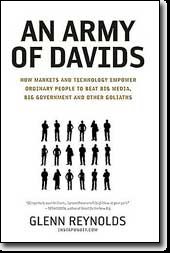Were Your Ancestors Legal Immigrants?-A True Story
A friend of mine, who was born in post-war Hungary, told me this true story. His family lived in a tiny Hungarian village, until the Soviets crushed the 1956 Hungarian Revolution. Then his family joined the crowds of refugees who sought asylum in neighboring Austria. They were housed in a refugee dormitory in a hotel in Vienna, where many refugees, who had applied to immigrate to the United States, lived and waited for their name to reach the time of the visa list. One day someone in the hotel died, who had been near the top of the waiting list to enter the USA. Did the refugees report the death to the U.S. Embassy? No. Instead, one of the other refugees, who had been much farther down on the waiting list for entry into our country, assumed the identity of the dead refugee. The impostor in due course was granted a visa, immigrated to the United States, became a citizen, prospered, and contributed immensely to his adopted nation. He married, and had children and grandchildren. However, unbeknownst to his grandchildren, he had entered the United States illegally, under false pretenses.
It is not unlikely that his grandchildren might be heard today saying, "I am not against immigration or immigrants. My grandfather was an immigrant. But he entered the country legally." The truth of the matter is that the story I related is not rare, but with minor variations has no doubt happened thousands of times. (Such an incident is part of the plot of Scott Turow's wonderful recent novel, Ordinary Heroes.) People in desperate straits do desperate things. Few of us are privy to our ancestors' immigration papers and case histories. If we were, we might not be so quick to decry illegal immigration. I for one am quite certain that if I were a Mexican or Honduran or Salvadoran or Guatamalan who needed to feed my family, and I could not make a living in my native land, I would make the desperate trek al norte. Such an attitude may represent the best in human nature--love of family, courage, initiative and self-sacrifice, not a criminal mentality.
Yes, we need to secure our borders. Yes, we need to register those illegal aliens who are already in our country and run backround checks. Yes, we need stronger sanctions for those who knowingly employ illegal aliens. But I fully support the President's call for a guest worker program that would allow presently illegal immigrants and those waiting to come here to regularize their status as legal resident aliens. Also, I for one would not be too quick to support legislation, such as the House immigration reform act, that would make an illegal immigrant a felon. As my story illustrates, one never knows whom such a wide net would snag.
Another point: We probably need a large Latin American immigrant population to become citizens, not merely temporary residents. The United States has an aging population and a birthrate too low to sustain its current numbers. If it were not for immigration from Latin America, mostly illegal, our country's population would be shrinking, not growing, and the demographics of an aging population would greatly exacerbate the burden that social security and Medicare will impose on the workers of the younger generations. Immigrants with marginal jobs will have children who will be better educated, and who will have better jobs. We aging Baby Boomers will be depending on those children of Latin American immigrants, when they grow up, to pay the income taxes necessary to pay our entitlements.
The countries of Europe face a similar demographic problem, but, unhappily for them, their young immigrant population largely comes from Islamic countries with anti-Western sentiments. Dennis Prager, among others, has pointed out that we should consider ourselves fortunate that our immigrant population comes from cultures within the Judaeo-Christian tradition.
Lowell adds: First of all, I can see that adding Ralph to this blog was an inspired idea. He is definitely classing up the joint. What took me so long?
Second, "amen" to everything Ralph says above. I am a little more eager than he apparently is to see the borders secured, as a first priority, but I do believe a guest worker program should be implemented simultaneously with such enforcement efforts, or very shortly thereafter.
Another point: It has become fashionable in certain conservative circles to call any guest worker program "amnesty." As Michael Medved pointed out on his show yesterday, that's a terrible distortion and is flat wrong. Even the McCain-Kennedy bill, which I find problematic, requires any illegal immigrant who wants to "come in" to pay a fine, pay back taxes, and go to the end of the line for citizenship consideration. That's not amnesty; it's a admission of having broken the law and an acceptance of a legal penalty for doing so.
Finally: Victor Davis Hanson was on the Ingraham show two days ago. He told Laura that we have to do something to distinguish among the 11-12 million illegals who are here. Some should be deported, of course-- for example, the unmarried 18 year-old who got here six months ago. But what about the 30 year-old who was brought here from Mexico when he was 9 and owns a home, is married, has children, and has a responsible job? Even Laura shed her Attila-like exterior for a moment and agreed that there is a need to make distinctions. Medved echoed this point also yesterday.
It's not a simple problem. We need to find a smart, ingenious, tough-minded, compassionate, and fully American solution to it.
























